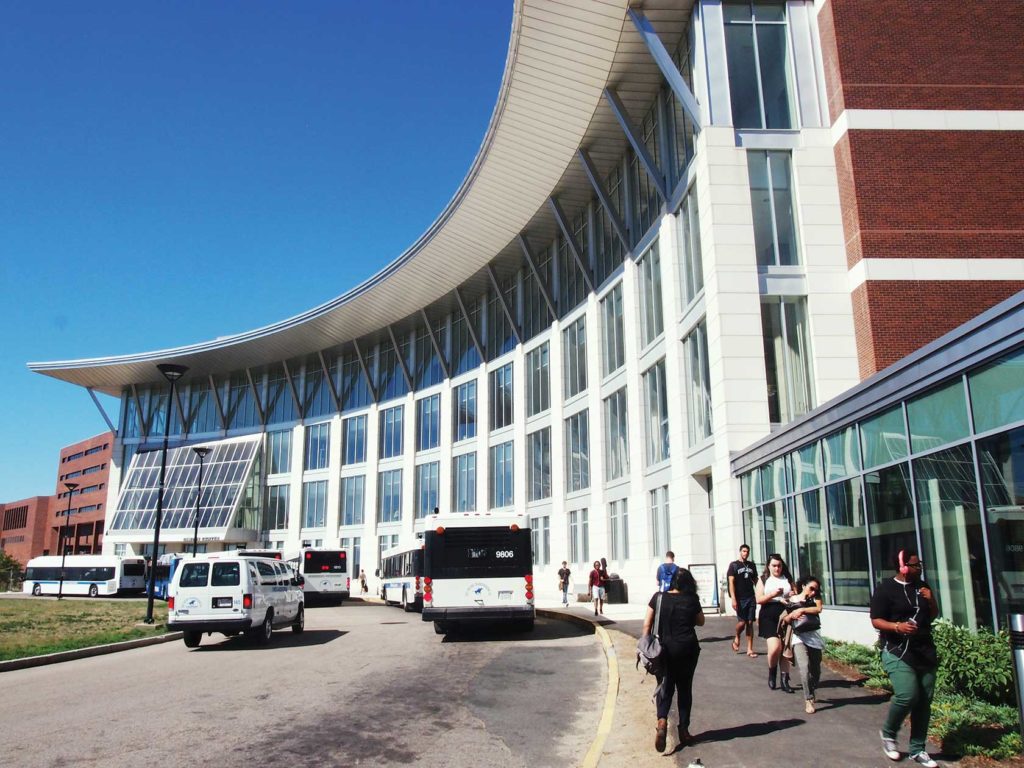Black UMass Boston faculty fight for funding
Trotter Institute, Africana Studies still lacking staff

For nearly 40 years, the William Monroe Trotter Institute has served as the only public research institution in Massachusetts dedicated to the study of Black communities, tracking the trends in housing, education, politics, immigration and other areas that affect people of African descent in the state.
But after UMass Boston officials announced in 2017 that the Trotter and other research institutes would lose university funding over a five-year period, the future of the think tank has been in question. In 2019, long-time Trotter Director Barbara Lewis left the institute. Her replacement, Quito Swann, last year left the university after little more than a year at the helm of the institute.
Now the Trotter Institute office on the 10th Floor of the Healey Library remains empty, with no full-time employees.
Adding to the uncertainty for Black faculty at UMass Boston, the school’s Africana Studies department currently has just one full-time professor and one part-time professor, down from seven faculty in 2017. The most recent hiring process, during which more than 50 people applied for two positions, ended in February when faculty say Provost Joseph Berger pulled the plug on the process.
“They’ve refused to fill the positions,” said Jemadari Kamara, the chair of the Africana Studies department.
Officials at UMass Boston have not yet responded to the Banner’s requests for comment for this story.
In March, the administration contracted with attorney Walter Prince and former District Attorney Ralph Martin to audit Africana Studies and the Trotter Institute, a process that would likely further delay replacing the Trotter director and attracting new Africana Studies professors, according to professors reached by the Banner.
“I’m not even sure why the attorneys are being brought in,” said Carroy Ferguson, a professor of psychology. “The issues affecting the Trotter and Africana Studies aren’t linked. Each one has its own dynamics.”
The turnover and current lack of leadership at the Trotter Institute affects not only UMass, but policymakers and academics across the state, says James Jennings, a former director of the institute.
“I think it’s really a setback for higher education in Massachusetts. There are challenges facing the African American community the Trotter Institute was created to address.”
In 2019, the Trotter Institute collaborated with the other ethnic institutes at UMass — the Mauricio Gaston Institute, the Institute for Asian American Studies and the Institute for New England Native American Studies — along with the Boston Foundation’s Indicators Project to produce a report on the changing demographics of Massachusetts cities and towns, documenting population gains by people of color as well as unequal rates of home ownership, employment and representation in key business and civic institutions.
Such research fits the institute’s mandate, Jennings said.
“The Trotter’s research had to be connected to people’s everyday lives,” he said. “The status and wellbeing of the community is the unit of analysis. Boston University, Northeastern University and Harvard are running all kinds of studies on race, but not with the same focus. People need good data with qualitative and quantitative analysis that can inform public policy.”
The university’s reversal of its plan to defund the institutes is an encouraging sign, said Gaston Institute Director Lorna Rivera.
“This gives us a little more stability and the ability to do strategic planning,” she said.
But the external review, along with the university’s decision to suspend its search for a director at the Trotter, has many at the university worried. The last administrative staff person at the institute has been reassigned in an unusual arrangement to split her time between Africana Studies and the office of Provost Berger.
The lack of movement at the Trotter comes despite the work of a university-appointed committee of 11 academics who put forward a proposal last year on how to move the Trotter Institute forward.
“We did the work,” Ferguson said. “We put forward a proposal in the fall. We haven’t gotten any response from the administration.”
There appears to be a little more clarity in stalemate between the administration and the Africana Studies Department. In the department’s search process, professors first winnowed the field of 50 applicants down to 12 semi-finalists for two open positions. Then they further reduced the field to three finalists for one position and four for the other, before passing the candidates on the College of Liberal Arts dean, Tyson King-Meadows.
King-Meadows, however, insisted on reviewing the list of 12 semifinalists.
“That’s just not how you do it,” Ferguson said. “I’ve been at this school since 1979. It’s never happened that way.”
Ferguson drafted a letter, which he and other faculty sent to the dean, provost and chancellor.
“The dean just doubled down,” Ferguson said.
Soon after, Berger brought in Prince and Martin for the audit of Africana Studies and the Trotter Institute.
Kamara, the Africana Studies chair, said the cancellation of the search has contributed to an atmosphere of instability in the department.
“We’re being asked to do more with less than any other department,” he said.
Recently, Kamara requested to fill three more positions in Africana Studies, in an attempt to restore the department to its prior staffing level.
“It wouldn’t get us to where we need to be, but at least we’d be on track,” he said.
The request was rejected.







